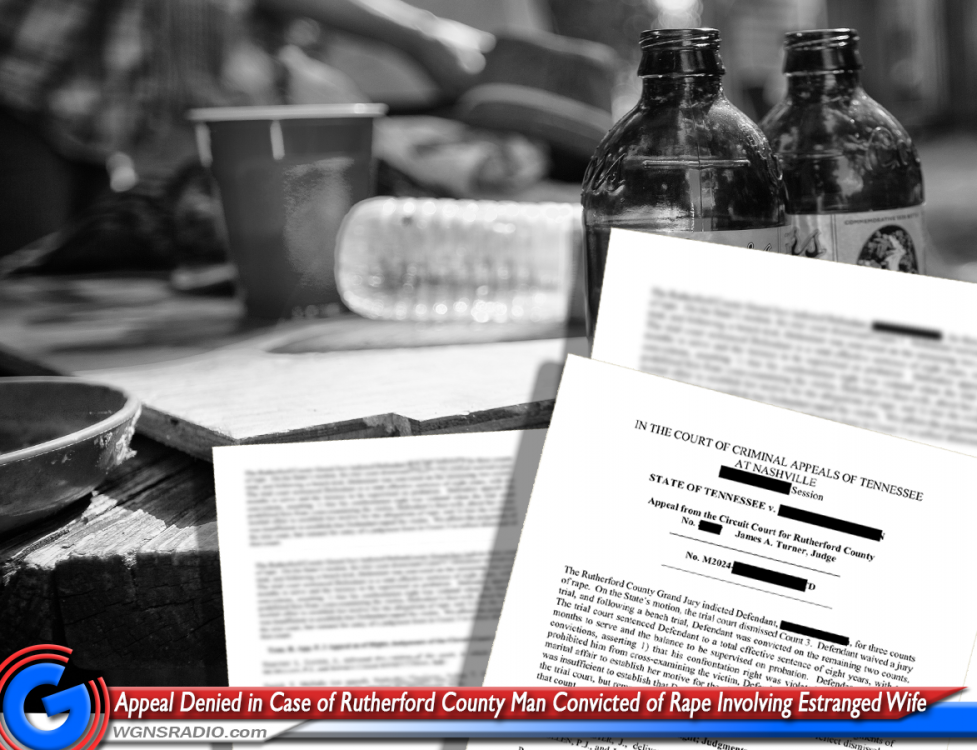RUTHERFORD COUNTY, TN — A Rutherford County man has lost a recently filed appeal after previously being convicted of two counts of rape following a bench trial in a case involving his estranged wife. The conviction stems from a 2019 incident that occurred while the couple was separated but still intermittently sharing the marital home to care for their children.
According to court testimony, the victim had married the defendant in 2015. By September 2019, she had informed him that she wanted a divorce, and the two began living apart. Despite the separation, she returned to the home frequently during the day to care for their children and occasionally stayed overnight. On one of those nights in December 2019, she agreed to spend the night so she could wake up with the children in the morning.
The woman testified that after putting the children to bed, she sat on the couch where the defendant attempted to initiate physical contact. She rejected his advances and told him she did not want to have sex. After taking a Benadryl and after drinking an alcoholic beverage, she fell asleep. The woman said that she remembered waking up briefly during the night and pushing the arm of her estranged husband off of her, but recalled little else until the next morning, when she felt clear signs that she had been sexually assaulted while asleep.
The victim confronted her estranged husband, who initially denied any wrongdoing but later admitted to having sex with her during the night. He reportedly cried and told her he believed the act would help save their marriage. She testified that this was not the first such incident and that she had repeatedly told him that such behavior made her uncomfortable and asked him to stop.
The woman eventually disclosed the events to two of her colleagues, who urged her to report the incident. Although she did not immediately go to law enforcement, she later filed a report with the Smyrna Police Department on the same day her husband filed for divorce—approximately eight months after the incident.
During the trial, two close friends of the couple testified that the defendant had called them in the days following the assault and admitted to having intercourse with the estranged wife while she was unconscious. Text messages exchanged between the defendant and a friend were entered into evidence, in which the defendant acknowledged the lack of consent, referencing past sexual experiences and his mistaken belief that the situation was acceptable.
The defendant took the stand in his own defense, claiming that his wife had been awake and that he believed the act was consensual. However, the trial court was unconvinced. The judge noted inconsistencies in the defendant’s testimony and pointed to prior contradictory statements made during a separate hearing. While acknowledging some credibility concerns with the victim’s testimony—particularly her delayed reporting and continued occasional contact with the defendant—the court ultimately found her to be truthful and ruled that the state had proven its case beyond a reasonable doubt.
The judge found that the victim had explicitly declined sex before the assault and that her consumption of alcohol and Benadryl rendered her mentally incapacitated and unable to consent.
The court merged the two rape counts into a single conviction and sentenced the defendant to eight years in prison, with ten months to be served in custody and the remainder suspended to probation. A motion for a new trial was filed and denied earlier this month (file date on documents was June 5, 2025).





